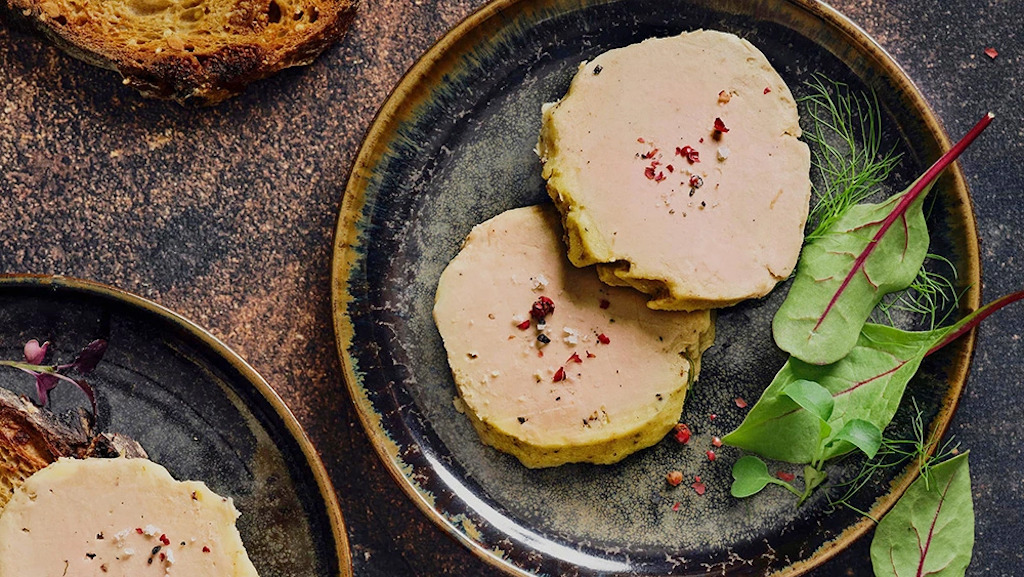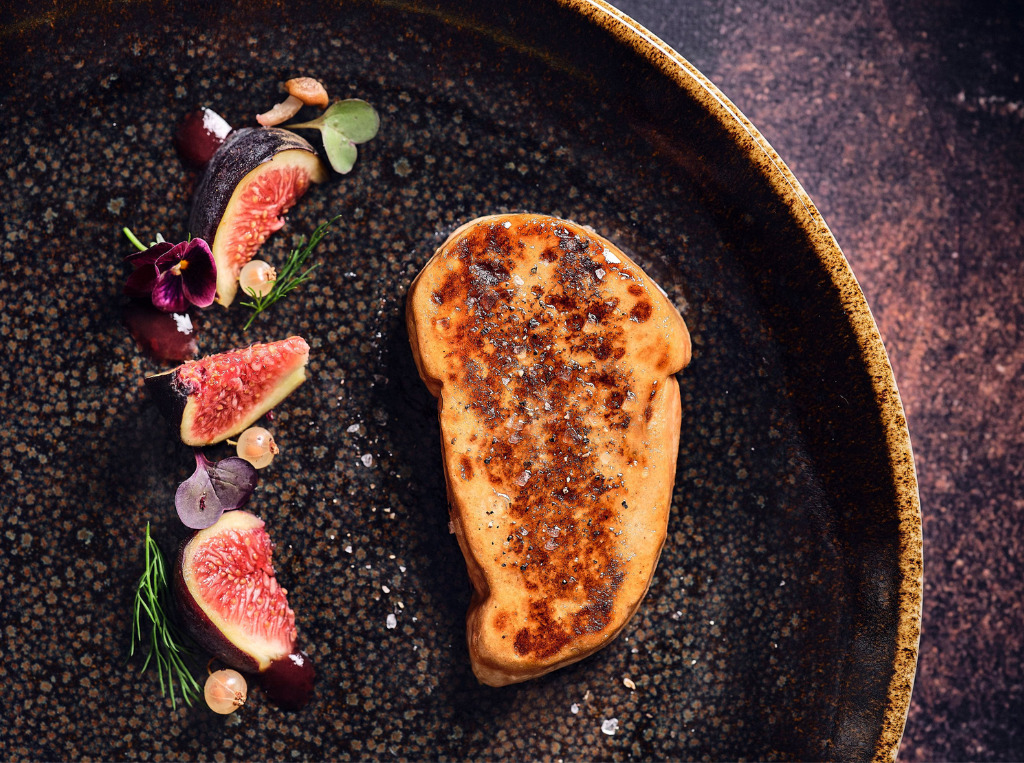Au Revoir, Cultivated Meat?: France Follows in Italy’s Footsteps with Proposed Ban By Parliamentarians
7 Mins Read
Shortly after Italy announced a ban on the production and sale of cultivated meat, France’s Les Républicains party announced its own proposal to cultured meat in the country, with a group of policymakers arguing it goes against French tradition and hurts livestock farming.
France’s Les Républicains party has submitted a proposal to ban cultivated meat in the country, with a bill introduced in the national assembly hoping to prohibit the production and marketing of these proteins. It comes after a year of aggressive policies that have shunned alternative proteins like plant-based meat and welcomed industrial farming.
The bill proposes it be forbidden to produce, process or market cultured meat in the country “in the interests of human health, animal health and the environment”, arguing that companies in this space justify themselves by presenting their products as alternatives to “low-quality imported meat produced in poor environmental and animal welfare conditions”. “But replacing ‘junk food’ with another ‘junk food’ is not progress,” it argues.
The argument behind France’s cultivated meat ban

The legal proposal began by outlining the history of cultivated meat and landmark events in the space, including Dr Mark Post’s unveiling of the world’s first cultivated burger 10 years ago, Eat Just’s regulatory approval in Singapore in 2020, and Upside Foods’ premarket approval for the sale of its cultured chicken in the US (received by Eat Just too).
It uses these developments as context for a report by the Committee on Economic and Monetary Affairs earlier this year, which advised readers to “be vigilant to better supervise and control the technology”. The Républicains party members wrote that the committee “clearly reaffirmed its anthropological, ethical and cultural opposition to the development of cellular foods”, adding that just because a technological innovation is possible doesn’t mean it needs to be developed.
The proposal stated that cultivated meat poses a “real threat” to livestock farming and French breeding, which has “already weakened”. France is the EU’s biggest beef supplier, as well as its third-largest pork producer. Its citizens ate nearly 85kg of meat per capita last year, double the global average. But food has seen an 11% inflation in France, forcing many to seek cheaper meat – the number of people who can afford premium meat has reduced from 50% in 2017 to 30% now.
This was the reason put forward by French agriculture minister Marc Fesneau when he called for increased factory farming in the country to take “back the market from imports”, saying that animal welfare only works for the rich. This anti-alt-protein stance is reflected in the newly proposed cultured meat ban.
“Cellular meat, which I also call “paillasse meat” – in other words, a leg of lamb without lamb, a chicken breast without chicken – is, in my eyes, a total loss of direction for our society,” former French food and Agriculture Minister Julien Denormandie said during a parliamentary debate. “Only a science without a conscience could consider laboratory, test-tube meat as a solution,” he added, perhaps not seeing the irony.
Reactions from the meat and dairy industry

The move follows Italy’s ban on cultured meat, which had been months in the making. It was passed last month, with fines between €10,000 and €60,000 for each violation. Italy argued that cultured meat threatened traditional foods that defined Italy’s culinary culture, a rhetoric reflected in the French proposal too. “The purely utilitarian vision of food is, in fact, the opposite of French tradition, which sees food first and foremost as a cultural and social fact,” it read.
This is just one of many bills that get proposed by opposition parties in France, and the Economic Affairs Commission – where it would be first discussed – is extremely busy, which means the priority is likely going to be on higher-profile issues. Nevertheless, after this stage, it will go through plenary discussion in the Assemblée, then the Senate Economic Affairs Commission, followed by another plenary debate in the Senate. Then, France will have to issue a TRIS notification to the EU (a procedure that aims to prevent the creation of barriers in EU countries), which will then be referred to the constitutional council.
But even if the bill is passed into law, France wouldn’t be able to prohibit imports of cultivated meat produced within the EU, its common single market enables the free movement of goods and services. Nevertheless, this idea to “preserve its food and nutritional system, maintaining the relationship between food, land, and human labour” has appealed to many quarters.
Confédération Paysanne and Coordination Rurale are firmly opposed to the production of cultivated meat, while agricultural union group FNSEA has previously stated that it does not see any benefits for farmers, asking for more evidence about cultured meat’s benefits.
Meanwhile, the Fédération Nationale Bovine (The National Bovine Federation) released a statement asking pointed questions of cultivated meat, including: “Do we want foods resulting from cell multiplications in industrial incubation reactors, with growth substrates mixing everything into a set of substances?” and “Do we really think that this is a perspective to be proposed for the consumption of our fellow citizens, while questions about human health are being asked, and the the real environmental impact of these facilities remains to be examined?”
When Italy moved to prohibit cultivated meat, the legislation included a ban on meat-related terms on plant-based product labels. This is something France did a few months ago as well when its agriculture ministry suggested banning 21 terms like ‘steak’, ‘beef’, ‘ham’ and ‘grilled’ from vegan meat analogues, while listing over 120 meat-related terms that can be used only if products have a maximum share of vegan proteins between 0.5% to 6%.
One of the groups at the forefront of the move to block cultivated meat in Italy is Coldiretti, one of Europe’s largest farming associations. Its president Ettore Prandini had expressed his pride in Italy being the first nation to ban these proteins. Now, he says the French parliament’s move “confirms Italy’s role as a trailblazer” in health-safeguarding policies: “The battle over synthetic meat is now moving to Europe.”
Consumer attitudes and funding for cultured meat

France and Italy aren’t the only countries where certain politicians want to ban cultivated meat. Last month, a Republican representative in Florida introduced a bill to ban cell-cultured meat in the US state, while the Romanian senate has voted to prohibit the sale of these proteins as well, which will need approval from the Chamber of Deputies.
If the cell-based meat ban is voted through, it will affect companies like Gourmey (which works on cultivated foie gras and has raised €58M in funding) and Vital Meat (cell-cultured chicken), which the draft namechecks. It criticised state-owned bank Bpifrance for backing these companies with €6M “in the form of loans, repayable advances or subsidies”.
Denormandie has also previously been criticised for a tweet denouncing cultivated meat in 2020. “Is this what we want for our children, as a society? Me, no! I will clearly state it: meat comes from the living, not laboratories,” he wrote. “You can count on me, in France, meat will remain natural and never artificial!”
“It would be a shame to reject outright an innovative method of production that enables France to compete in the growing field of alternative proteins,” responded alt-protein think tank Agriculture Cellulaire France. “Instead, let’s promote the development of a French sector that guarantees quality.”
Also noteworthy is the fact that Les Républicains member and senator Olivier Reitmann had produced a report on cultivated meat calling for investment in research for these novel proteins. He also opposed a potential ban. In light of this, Pauline Grimmer, policy officer at the Good Food Institute Europe, called the proposal “disappointing”.
She told Green Queen: “This bill is a needless attack on consumer choice and local startups, and would cut France off from investment and job opportunities. It would also undermine efforts to tackle climate change just as the UN Environment Programme and countries around the world recognise cultivated meat’s potential.”
A small 118-person French study last year revealed that 80% of respondents would like to try cultivated meat, but believe it could have a negative impact on the animal industry. Meanwhile, 41% fear undesirable health effects and 29% don’t believe the meat is of high quality. Despite that, 80% concede that it “will become widespread more or less quickly, whether they like it or not, mainly because French people’s mentalities are changing”. If the French parliamentarians are anything to go by, that doesn’t seem to be the case.
This story was updated to include details about the bill’s pathway and Olivier Reitmann’s report, as well as the Good Food Institute Europe’s quotes.



